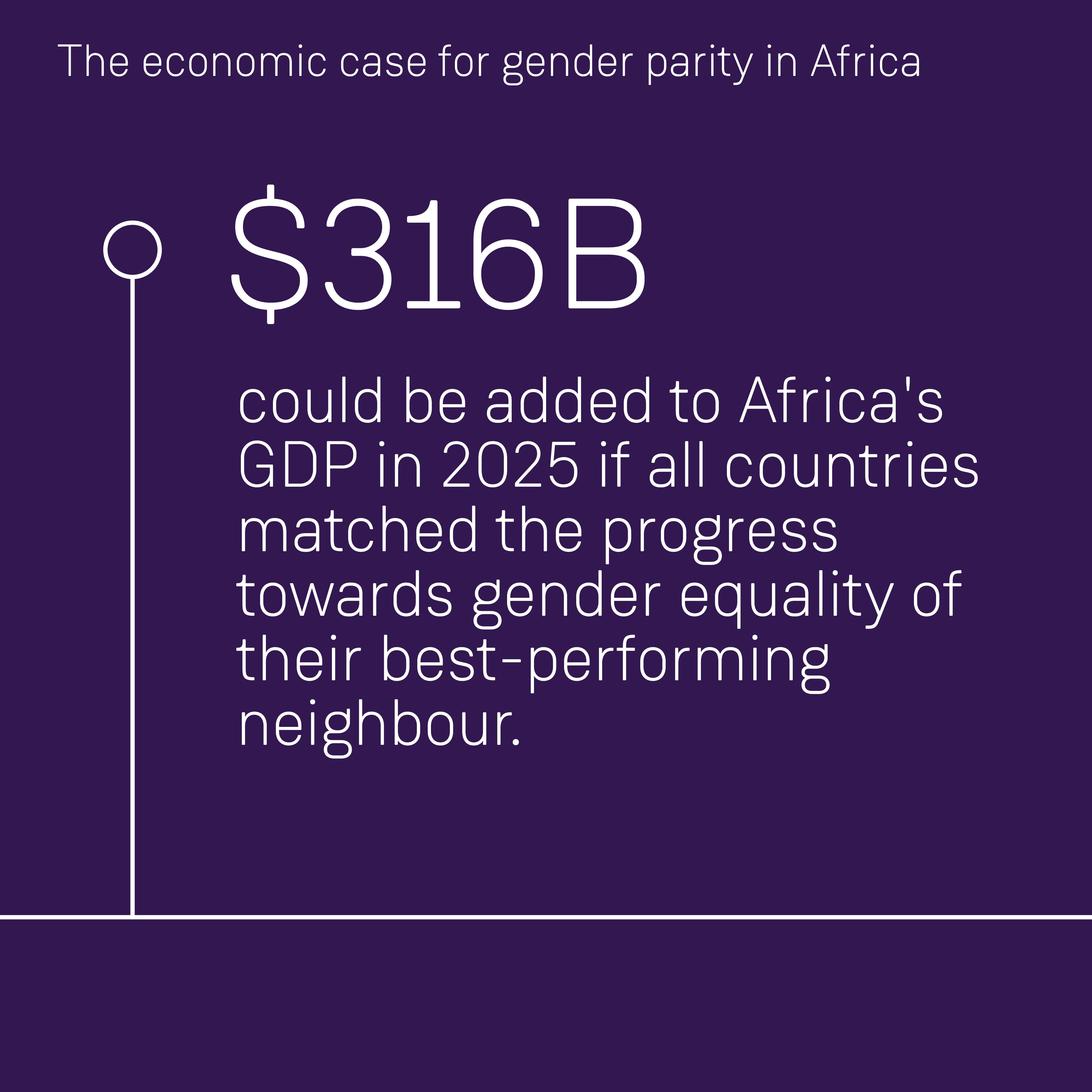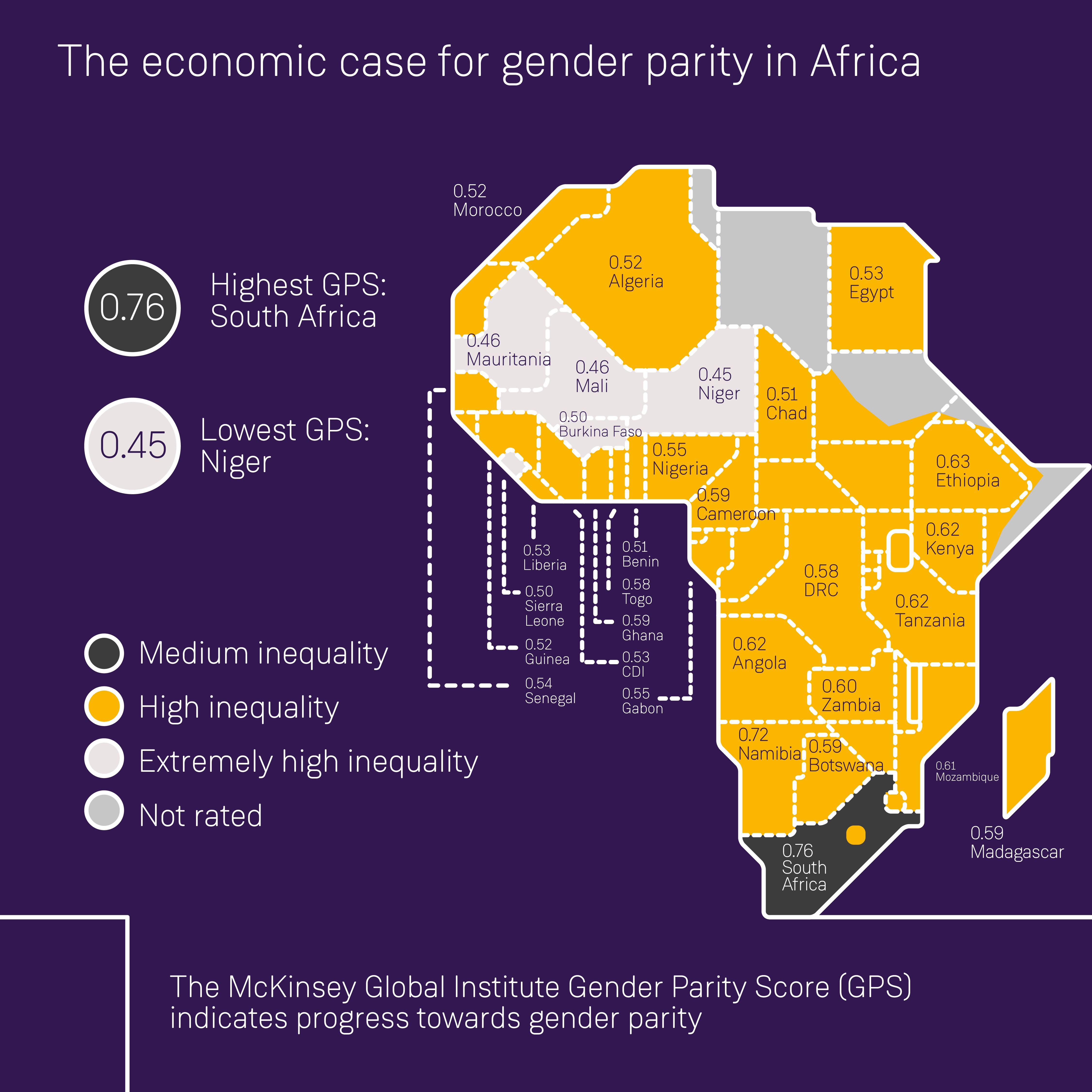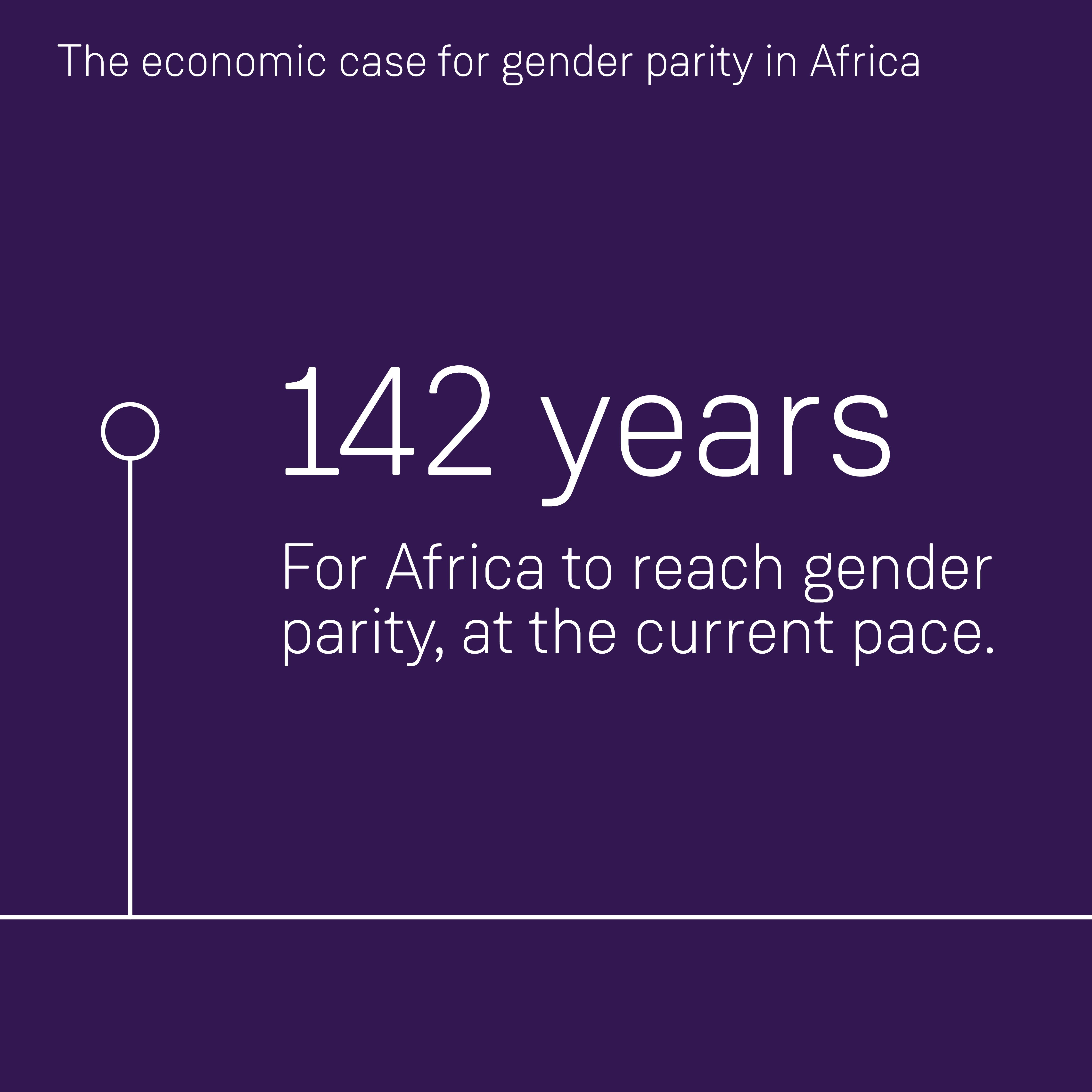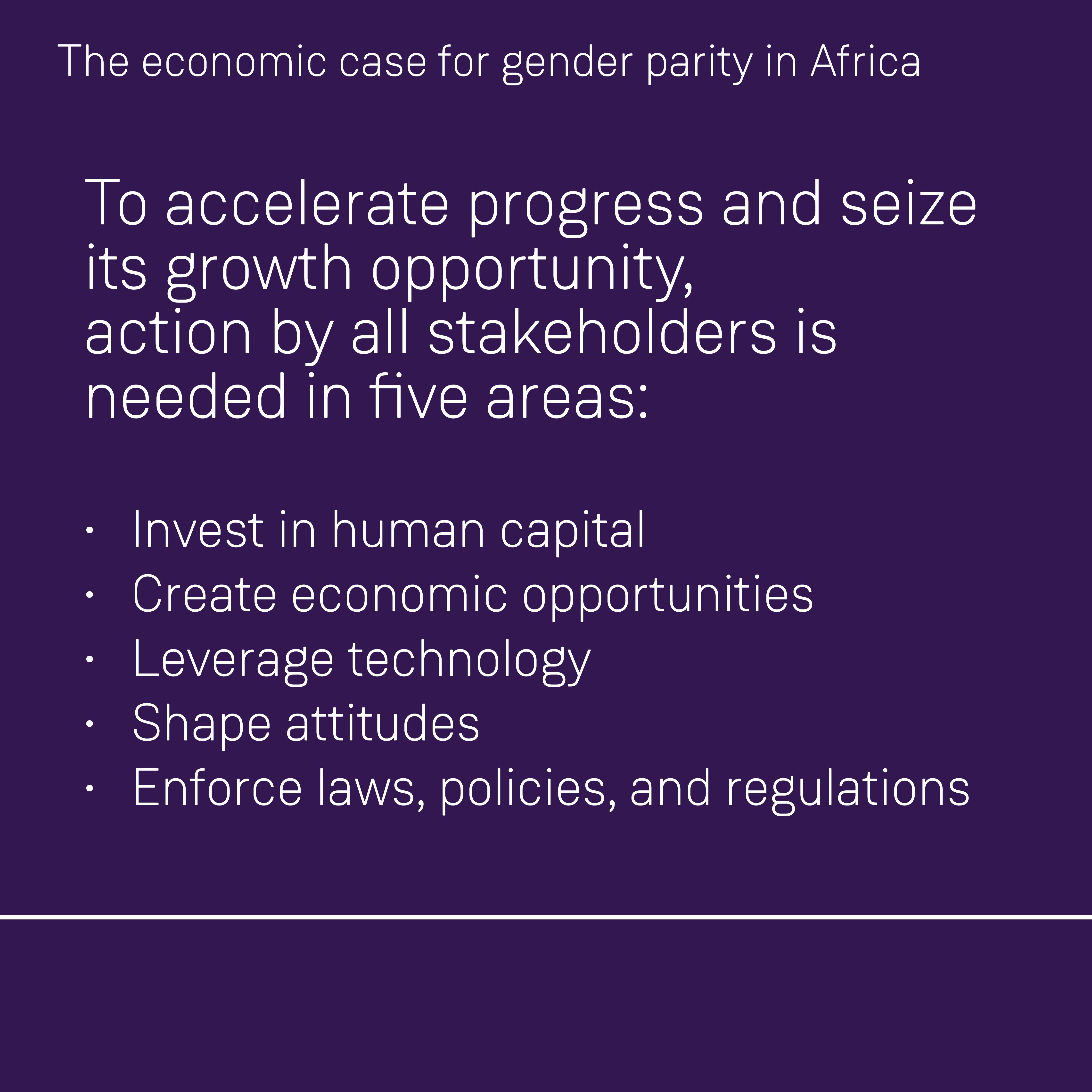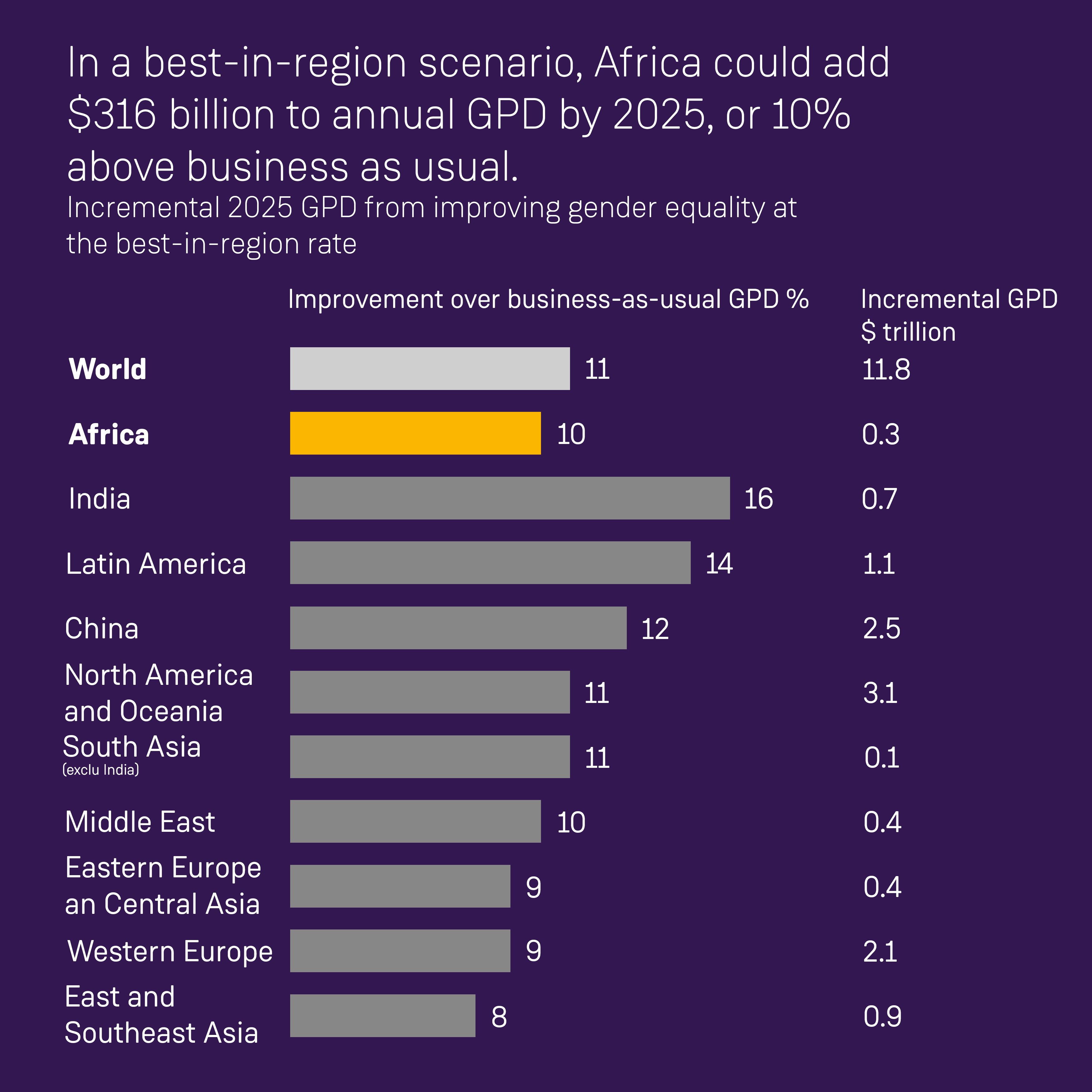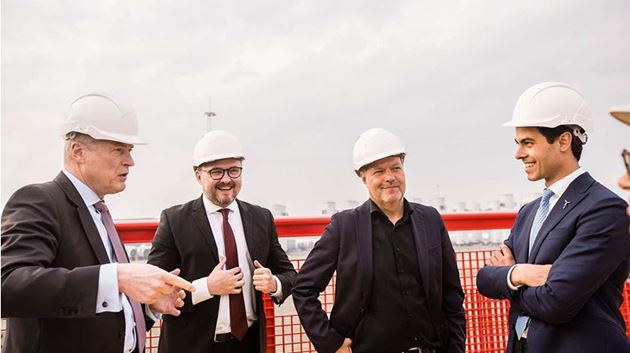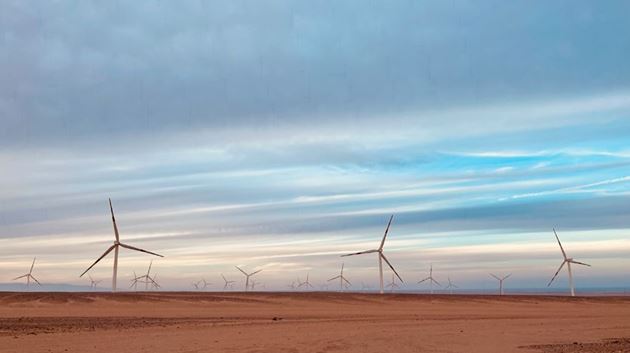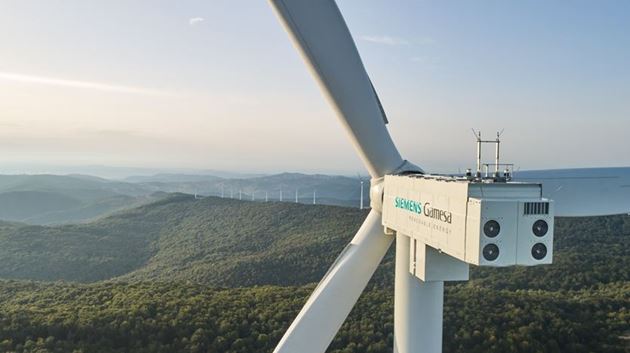
Gender-balance is a powerful agent of change for Africa’s growth
Tangier / 25 May 2022
Women represent more than half Africa’s combined population, but only generates 1/3 of the continent’s collective GDP. This reinforces and fuels the urge to involve more women to contribute to the continent’s long-term economic growth and health by providing them access to education, access to financial services, and new digital technologies, which will unlock many growth and development opportunities for Africa.
Although progress has been made in many countries around the world, the gender gap between women and men in Africa remains important in certain areas. According to a McKinsey’s study named “The Power of Parity: Advancing Women’s Equality in Africa”, a large majority of women work (89% according to UN Women) in informal sectors and still need to break through leadership and decision-making positions in business, politics, or international agenda.
Women in Climate Action Group has presented a recently released report, revealing that women are still under-represented in climate decision making, finance and strategy. Only 19% of International Monetary Fund and World Bank board members are female when 80% of people displaced by climate change are women (source: Reuters). As research warn that women and girls are disproportionately impacted by climate change, figures from the UN highlight that 70 % of the 1.3 billion people living in poverty are women and that 80 % of people displaced by climate change are women. Women in Africa tend to work in industries that are vulnerable to extreme weather, such as farming and fishing, in addition to having less access to education, property, basic human rights, or even the freedom of income, than their male counterpart. Improving gender equity in climate emergency actions would involve the development and implementation of a framework where empowering women as a key potential solution in climate finance can significantly contribute to curbing global warming to 2 degrees Celsius, and that is not “Blah Blah Blah”. ActionAid’s campaign named “She is the Answer” estimates that girls’ education and family planning would reduce carbon by 85 gigatons by 2050 since women and girls are essential leaders in helping their communities develop resilience to climate change.
Progress towards gender equality still differs substantially among African countries but pockets of good news are still occurring to reduce the gender gap. Regarding for instance politics, we have seen lately a distinct introduction of proactive measures in favor of fast-tracking women’s participation in parliament. Currently, most African countries have at least one gender quota in place, including 13 countries out of 39, that hold specifically reserved seats for women in parliament as opposed to legislated candidate or political party quotas. These reserved seats allow countries to hold high percentages of women members in parliament, such as Rwanda (61.25%), South Africa (46.35%), Senegal (41.82%), and Ethiopia (38.76%), and include more women and diverse perspectives in legislative decision-making. In SGRE’s 100 MW Assela wind farm management in Ethiopia, 14% of our current workforce is feminine.
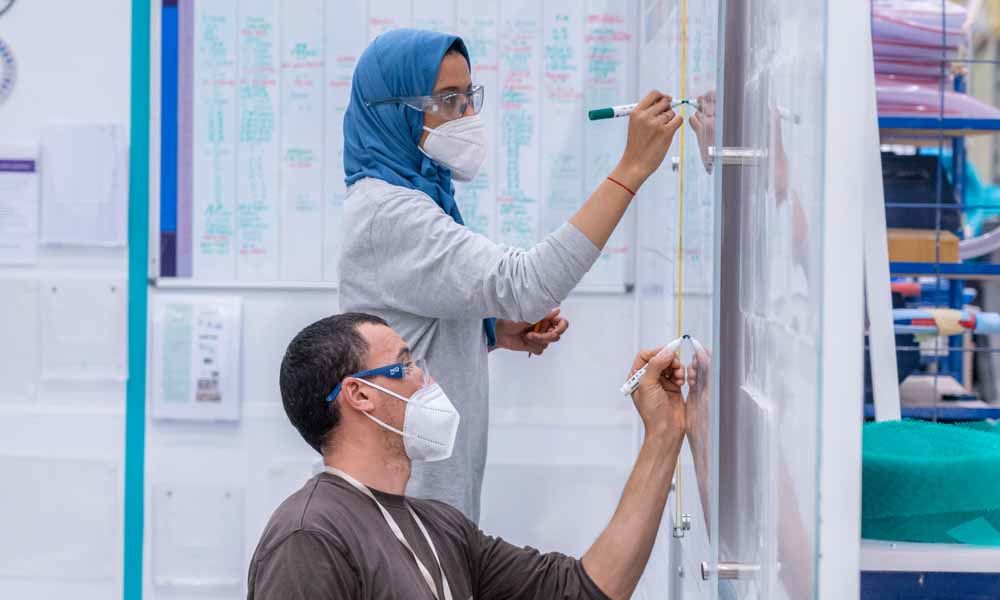
Through the Women for Women in Need Initiative (W4WIN), led by volunteering employees, Siemens Gamesa has championed initiatives in Africa for gender parity to empowering women to primary give them access to their basic rights with the aim to give them a chance to contribute to their families’ income and ultimately reduce the gap between men and women.
There is no doubt that advancing gender equality and empowering women can significantly lead to advancement in Africa’s economy and environmentally conscious decision-making, and that through women leadership, education for inclusivity, and gender equity for climate resilience.

